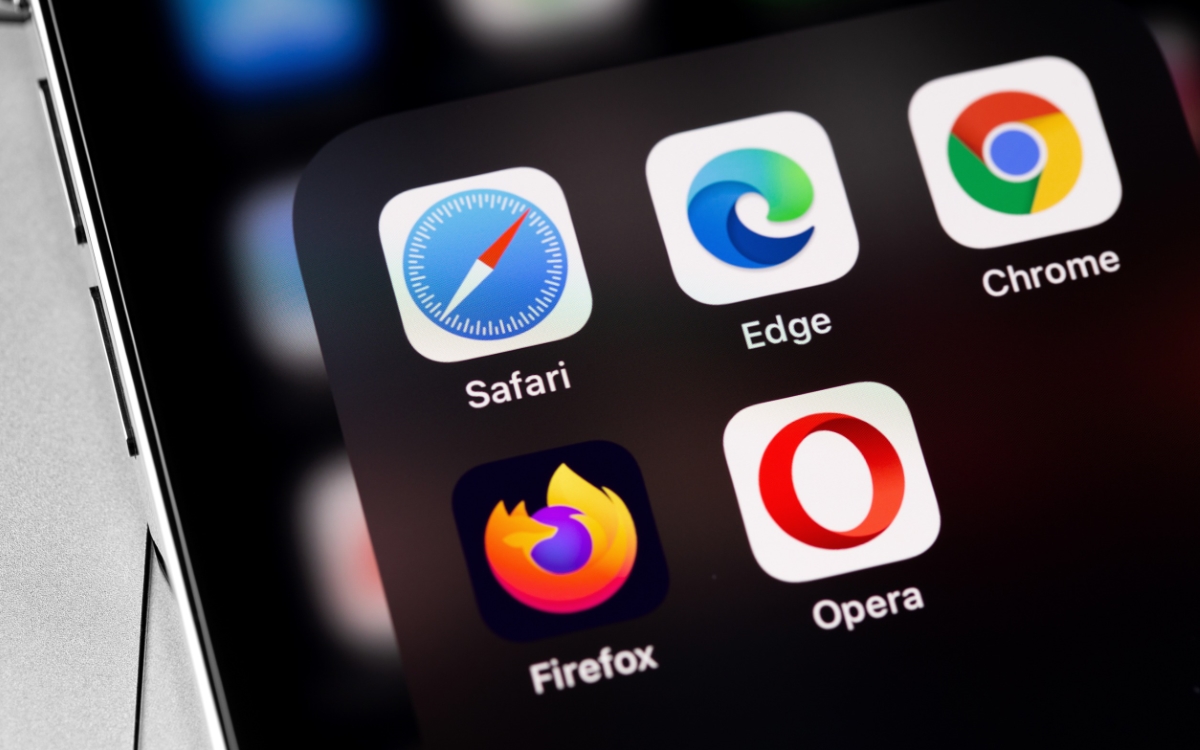
Google and Mozilla want the new EU browser standards for iOS to be globally enforced.
Apple’s “Digital Markets Act” in the European Union is forcing the company to make significant changes to iOS in that region. A requirement of the legislation that targets Big Tech “gatekeepers” in terms of interoperability, fairness, and privacy is that Apple let rival browser engines on iOS. With iOS 17.4, competitors’ browsers, such as Chrome and Firefox, will be able to finally launch their web rendering code on iPhones and iPads. Apple has proposed modifications to the iOS browser, which seem to improve things somewhat, but Google and Mozilla aren’t thrilled about them.
A spokesman for Mozilla, Damiano DeMonte, already commented on Apple’s policy changes to The Verge, criticizing the choice to restrict the browser updates to the EU. “While we continue to examine the technical aspects, we are deeply dissatisfied with Apple’s suggested strategy to limit the recently released BrowserEngineKit to applications intended for the European Union,” stated DeMonte. “This would have the effect of forcing an independent browser, such as Firefox, to develop and maintain two different browser implementations, which is a burden Apple will not have to shoulder.” DeMonte continued, “Apple’s plans fail to offer users realistic options by making it extremely difficult for third parties to offer competitive Safari alternatives. This is just another instance of how Apple erects obstacles in the way of real browser competition on iOS.
The public documentation for Apple’s “BrowserEngineKit” framework, which supports different browser engines, is already available in the iOS 17.4 beta. To utilize the framework in a production app, browser suppliers will need to obtain Apple’s permission, which will come with several restrictions similar to those for other iOS apps. None of the prerequisites stand out as particularly harsh: Apple demands that browser suppliers maintain a minimum level of web standards, promise to promptly patch security flaws, and safeguard users’ privacy by displaying the customary consent prompts for access to features like location.
The prohibition against “synching cookies and states between the browser and any other apps, even other apps of the developer,” appears to be a clear jab at Google and its insistence on having all of its iOS apps communicate with one another. The main drawback is that your BrowserEngineKit software is only available within the EU, as, surprise!, EU regulations are exclusive to the EU.
Speaking of Google, Parisa Tabriz, vice president of engineering for Chrome at Google, responded to DeMonte’s remarks about X by stating, “I strongly agree with @mozilla. It isn’t serious that Apple will support users’ choice of web browser or engine on iOS. Their approach is extremely constrictive and won’t give browser developers any genuine options.”
These days, you may download “alternative” browsers for iOS, such as Chrome and Firefox, but in reality, these browsers are essentially simply skins for the Safari engine built by Apple. Since developers of iOS apps aren’t technically permitted to use their browser engines, WebKit, the engine found in Safari, is used throughout, with a new user interface, settings, and sync capabilities overlaid on top. This implies that every browser is affected by all of WebKit’s bugs and feature support decisions.
It is not ideal for users to be forced to use Safari. Because it has lagged behind the competition in supporting sophisticated web capabilities, Safari has developed a reputation among web developers as “the new IE” over time. However, Safari has improved significantly in recent times. When push notifications were eventually supported in 2023, for example, online apps were able to more effectively compete with native apps that could be purchased from Apple’s lucrative App Store. Seven years after Google and Mozilla introduced push notifications, Apple began to embrace the feature.
Although more rivalry in the iOS browser market would be fantastic, in practice, that competition will primarily come from Google, the other major “gatekeeper” in the field. The web will become closer to a Chrome monoculture if Chrome manages to integrate with iOS. Chrome is the project with the reach and resources to effectively compete with Safari. Although Google’s browser might handle some online functions better than others, it will also contain an in-built tracking system that eavesdrops on users and gives advertisers access to their interests. Safari boasts a considerably superior privacy record.
Everybody, including Safari, must compete in the EU, even if only customers residing in the EU will have a choice among multiple genuinely distinct browsers. Even those in the rest of the globe lack a true browser option, so engaging in the EU browser wars ought to improve the one iOS browser available to all. iOS 17.4 must be released by March 2024 in order to comply with EU regulations. For the past year or more, Google and Mozilla have been developing complete versions of their browsers specifically for iOS. Will they be prepared for launch, perhaps?
Conclusion
Apple has proposed modifications to the iOS browser, which seem to improve things somewhat, but Google and Mozilla aren’t thrilled about it. A spokesman for Mozilla, Damiano DeMonte, already commented on Apple’s policy changes to The Verge, criticizing the choice to restrict the browser updates to the EU.

